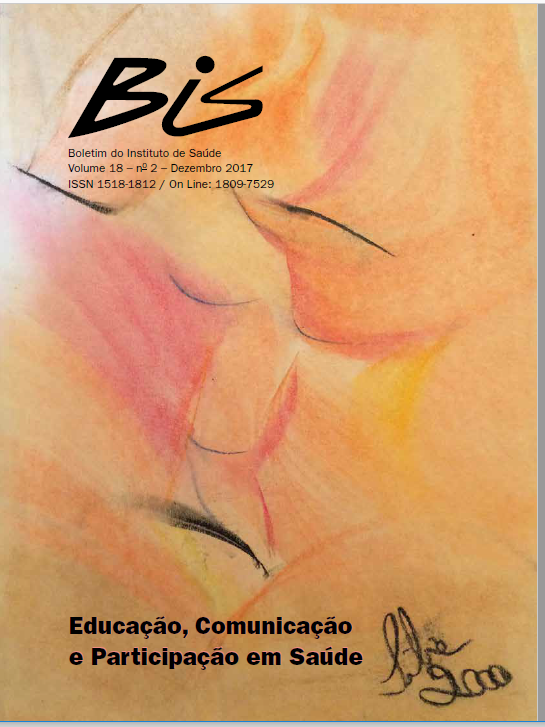Abstract
The present research aimed to study sustainability and emancipation as interdependent pillars of man’s and society’s existence. Here, sustainability is understood as the possibility of permanence, continuity of both. Emancipation is understood as the experience of ones ontological condition, as being able to participate in ones own future. A brief analysis of the productions of these objects is enough to expose their complexity and the interdependent relationship with which they are implicated, in a dialectical movement in which the realization of one requires the understanding and consideration of the other. This article therefore took the examination of sustainability and emancipation as its main object. In order to do so, through the application of Q Methodology, it searched the lexical meaning of sustainability in professionals who work with actions and reflections focused on this theme. As the main consideration of this survey, it was observed that the understandings of sustainability were mostly linked to the controls of the physical damages to the environment and that sustainability and emancipation, main object of this research, don’t associate to each other in the actions proposed by the participants. This fact reinforces the long path to be followed in the discussion of these pillars, as crucial elements of human life, since sustainability can only be possible by individuals who aim emancipation and therefore are able to build a narrative of their own.
References
2353.
2. Carson R. Silent spring. Boston: Houghton Mifflin;1962.
3. Castells M. A era da informação: economia, sociedade e cultura. São Paulo: Paz e Terra; 1999.
4. Ciampa A. A estória do Severino e a história da Severina. Um ensaio de Psicologia Social. São Paulo: Editora Brasiliense; 1987.
5. Ciampa A. Políticas de identidade e identidades políticas. In: Dunker CIL, Passos MC (Ed.). Uma psicologia que se interroga - ensaios. São
Paulo: Edicon; 2004.
6. Dejours C, Abdoucheli E, Jayet C. Psicodinâmica do Trabalho: contribuições da Escola Dejouriana à análise da relação prazer, sofrimento e
trabalho. São Paulo: Atlas;1994.
7. Doebel R. Sustainability in history. on uses and abuses of a concept and a term. Germany: University of Muenster; 2011.
8. Grober U. Deep roots. a conceptual history of sustainable development. Berlim: Wissenschaftszentrum; 2007.
9. Guareschi N. As relações sociais na construção das identidades. Psicologia em Estudo. 2002; 7(2):55-64.
10. Habermas J. O futuro da natureza humana. São Paulo: Martins Fontes; 2004.
11. Jonas H. Le principe responsabilité. France: Champ Essai; 1979.
12. Layargues PP. A cortina de fumaça: o discurso empresarial verde e a ideologia da racionalidade econômica. São Paulo: Annablume;
1998.
13. Malvezzi M. Sustentabilidade e emancipação. a gestão de pessoas na atualidade. São Paulo: Senac; 2013.
14. Mckeown B, Thomas D. Q methodology: quantitative applications in the social sciences. Iowa: Sage University;1988.
15. Pena-Vega A. O despertar ecológico - Edgar Morin e a ecologia complexa. Rio de Janeiro: Garamond; 2003.
16. Randall K, Bender D, Montgomery D. Determining the opinions of health sciences students and faculty regarding academic integrity.
International Journal for Educational Integrity. 2007; 3(2):27-40.
17. Ray C, Thorman J. Using Q methodology as a strategy to explore cultural opinions toward Health Care Journal of International Society for
the scientific study of subjectivity.2006; 29:3-4.
18. Sachs W. No sustainability without development: Aislin Magazine; 1995. v.11.
19. SPSS Statistics for Windows, IBM, Version 24.0. Armonk, NY: IBM Corp.
20. United Nations (New York). Report of the world commission on environment and development: Our comon future; 1987. [acesso em: 01
ago 2017]. Disponível em: http://www.un-documents.net/our-common-future.pdf
21. United Nations (New York). World summit on sustainable development WSSD. Johannesburg Summit; 2002. [acesso
em: 28 ago 2017]. Disponível em: https://sustainabledevelopment.un.org/milesstones/wssd
22. Veiga JE. Desenvolvimento sustentável. o desafio do século XXI. Rio de Janeiro: Garamond; 2005.

This work is licensed under a Creative Commons Attribution 4.0 International License.
Copyright (c) 2017 Mariana Malvezzi
